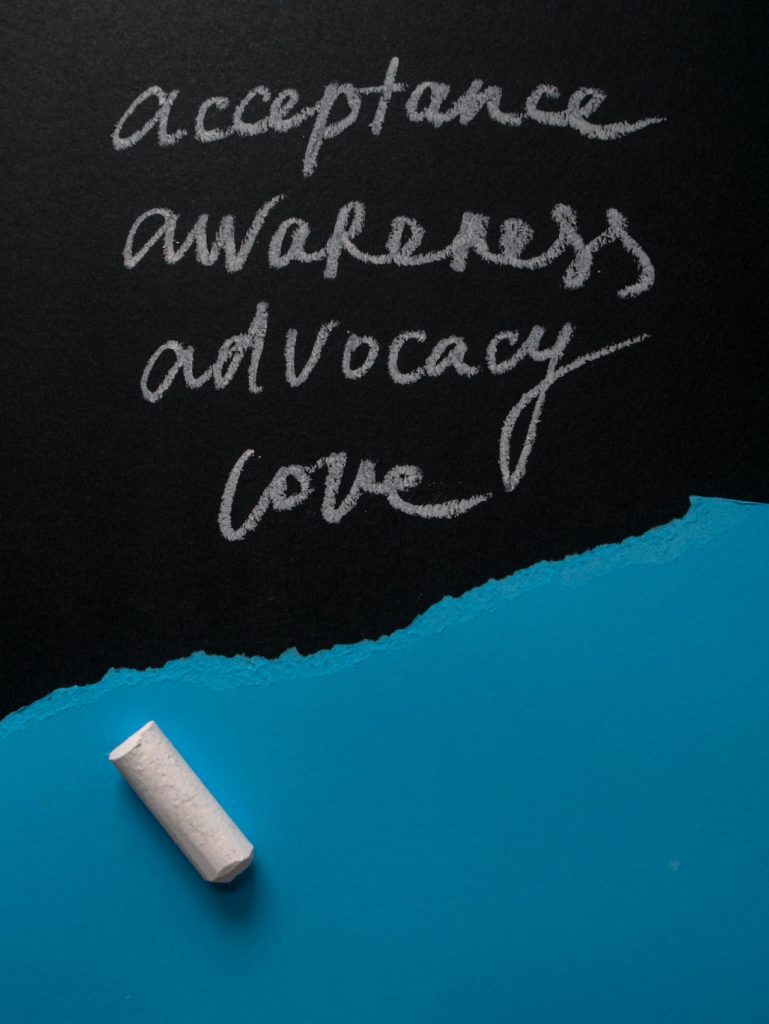Introduction:
Through the roller coaster ride of life, with its myriad of experiences and emotions, we arrive at this very moment. However, what we tell ourselves about ourselves holds more significance than anything else. Our entire future hinges on the story we weave. But arriving at a place of acceptance is not always easy, as there are events and circumstances that challenge us deeply. In particular, resentment can be seductive, clinging to us like molasses, preventing growth. Yet, taking responsibility for our lives and practising self-love can empower us to shape our future.

Section 1: The Seductive Power of Resentment
1.1 The allure of being “right”
The allure of being “right” in the face of resentment can be intoxicating. It gives us a sense of validation and righteousness, allowing us to wage a moral crusade against those who have wronged us. The satisfaction of proving our point and asserting our perspective can be deeply gratifying. It creates a temporary illusion of control and superiority, as if we hold the power to pass judgment on others. However, this allure comes at a cost. While we may feel momentarily vindicated, the negative elements of the past cling to us like hot tar, preventing us from moving forward and hindering our personal growth. It is essential to recognize that true empowerment lies not in the need to be “right,” but in freeing ourselves from the chains of resentment and embracing a path of healing and self-love.
1.2 The negative consequences of holding onto resentment
Holding onto resentment can have profound and detrimental consequences for our overall well-being. Firstly, it keeps us trapped in the past, preventing us from fully embracing the present moment and moving forward. The negative emotions associated with resentment, such as anger, bitterness, and revenge, consume our energy and mental space, leaving little room for positive experiences and personal growth. Moreover, prolonged resentment can poison our relationships, causing a cycle of conflict and toxicity. It hampers our ability to trust and connect with others, leading to isolation and loneliness. Additionally, harbouring resentment takes a toll on our mental and physical health, contributing to increased stress levels, anxiety, depression, and even chronic health conditions. It robs us of inner peace, happiness, and the ability to fully engage with life’s possibilities. Letting go of resentment is not only a gift we give ourselves but also a crucial step towards healing, personal liberation, and embracing a more fulfilling and joyful future.
1.3 Liberating ourselves from the grip of resentment
Liberating ourselves from the grip of resentment is a transformative and liberating process that empowers us to reclaim control over our lives. It begins with acknowledging and accepting the pain caused by past events or individuals. By embracing forgiveness, we release the emotional burdens that have weighed us down. This does not mean condoning or forgetting the actions that hurt us; rather, it is a conscious choice to let go of the negative emotions attached to those experiences. Practising empathy, compassion, and understanding towards ourselves and others allows us to break free from the cycle of resentment. Through self-reflection and self-care, we can heal and nurture our inner selves, cultivating a sense of inner peace and harmony. By choosing forgiveness and actively working towards emotional liberation, we create space for personal growth, genuine connections, and a renewed sense of joy and fulfillment in our lives.
Section 2: Embracing Personal Responsibility

2.1 Recognizing the role of others in our lives
Embracing personal responsibility involves acknowledging the role that others play in our lives. While we have agency and control over our own actions and decisions, it is important to recognize that external factors and the actions of others can influence our experiences and outcomes. Understanding that we are interconnected beings in a complex web of relationships allows us to view our interactions with empathy and perspective. It enables us to consider the intentions, motivations, and circumstances of others, fostering understanding and compassion. Recognizing the role of others does not absolve us of our own responsibility, but rather it provides a holistic view of the dynamics at play. It encourages us to engage in constructive communication, negotiate boundaries, and navigate conflicts in a way that promotes growth, harmony, and mutual respect. By acknowledging the impact of others, we can embrace personal responsibility in a way that honours both our autonomy and our interconnectedness with the world around us.
2.2 Owning our choices and decisions
Owning our choices and decisions is a fundamental aspect of embracing personal responsibility. It involves recognizing that we have the power to shape our lives through the actions we take and the decisions we make. Rather than playing the role of a victim or placing blame on external circumstances, owning our choices empowers us to take control of our destiny. It requires self-reflection and introspection to assess our motivations, values, and aspirations. When we acknowledge that our decisions, whether successful or not, are ultimately our own, we can learn from both positive and negative outcomes. Taking ownership also means accepting the consequences of our choices and being accountable for them. By embracing personal responsibility, we step into our power, proactively create the life we desire, and cultivate a sense of agency and fulfillment.
2.3 Empowerment through personal responsibility
Empowerment through personal responsibility is a transformative journey that allows us to harness our inner strength and take charge of our lives. When we embrace personal responsibility, we move from a mindset of victimhood to one of agency and self-empowerment. By recognizing that we have the power to shape our thoughts, actions, and outcomes, we break free from the limitations imposed by external circumstances. Personal responsibility enables us to set meaningful goals, make intentional choices, and persevere through challenges with resilience. It fosters a sense of ownership and accountability, empowering us to learn from our mistakes, adapt to change, and grow as individuals. Through personal responsibility, we tap into our untapped potential, realizing that we have the ability to create positive change not only in our own lives but also in the lives of others. It is the key to unlocking our true potential and living a life of purpose, fulfillment, and personal empowerment.
Section 3: The Depths of Self-Love

3.1 Moving beyond superficial self-care
Moving beyond superficial self-care, the depths of self-love call for a profound and genuine connection with ourselves. It involves recognizing that self-love is not merely about indulging in temporary pleasures or external pampering. It goes far deeper, requiring us to cultivate a nurturing and compassionate relationship with our inner being. True self-love involves embracing our strengths, acknowledging our vulnerabilities, and accepting ourselves unconditionally. It means honouring our emotions, thoughts, and experiences without judgment or self-criticism. It entails practising self-compassion, forgiveness, and kindness towards ourselves, even in the face of setbacks or mistakes. Moving beyond superficial self-care involves actively investing in our personal growth, prioritizing our mental and emotional well-being, and engaging in self-reflection and self-discovery. By delving into the depths of self-love, we embark on a transformative journey that allows us to truly embrace and celebrate our authentic selves.
3.2 Cultivating self-respect and self-compassion
Cultivating self-respect and self-compassion is an essential aspect of nurturing a deep sense of self-love. Self-respect involves recognizing our inherent worth and treating ourselves with dignity and honour. It means setting healthy boundaries, standing up for our values, and refusing to accept mistreatment or compromise our integrity. Self-compassion, on the other hand, is the practice of extending kindness, understanding, and forgiveness to ourselves during times of struggle, failure, or pain. It involves offering the same empathy and support that we would offer to a loved one in need. By cultivating self-respect, we foster a strong sense of self-worth, allowing us to make choices that align with our values and aspirations. Simultaneously, nurturing self-compassion enables us to embrace our imperfections and mistakes with kindness and understanding, fostering resilience and personal growth. Together, self-respect and self-compassion form a powerful foundation for self-love, allowing us to navigate life’s challenges with grace, authenticity, and unwavering self-acceptance.
3.3 The impact of self-talk on our lives
The impact of self-talk on our lives cannot be overstated. The internal dialogue we have with ourselves shapes our beliefs, influences our emotions, and ultimately affects our actions and outcomes. Negative self-talk, characterized by self-criticism, doubt, and harsh judgment, can erode our self-esteem, limit our potential, and create a self-fulfilling prophecy of failure. It becomes a self-imposed barrier to growth and happiness. On the other hand, positive and empowering self-talk can uplift our spirits, boost our confidence, and fuel our motivation. By consciously choosing to speak to ourselves with kindness, encouragement, and self-compassion, we create a nurturing inner environment that fosters self-love and personal empowerment. Shifting our self-talk from a negative to a positive mindset is a powerful tool that enables us to reframe challenges as opportunities, embrace our strengths, and overcome obstacles with resilience and determination. The impact of self-talk on our lives is profound, as it has the ability to either uplift us or hold us back. By cultivating a supportive and empowering inner dialogue, we unlock our true potential and pave the way for a fulfilling and successful journey.
Section 4: Unleashing the Power of Acceptance

4.1 Embracing our flaws and learning from mistakes
Unleashing the power of acceptance begins with embracing our flaws and learning from our mistakes. Instead of hiding or denying our imperfections, acceptance invites us to acknowledge and embrace them as an integral part of who we are. It is through this acceptance that we find the freedom to grow and evolve. Recognizing our flaws allows us to approach life with humility, compassion, and self-awareness. We can learn valuable lessons from our mistakes, viewing them as stepping stones towards personal development and growth. Acceptance liberates us from the burden of perfectionism and self-judgment, creating space for self-forgiveness and self-love. By embracing our flaws and learning from our mistakes, we cultivate resilience, wisdom, and a deeper understanding of ourselves. We realize that our worth is not defined by our failures but by our ability to rise, learn, and continue on the path of self-improvement.
4.2 Maintaining self-worth amidst challenges
Maintaining self-worth amidst challenges is a testament to our resilience and inner strength. It is during difficult times that our self-worth may be put to the test, as external circumstances and setbacks can shake our confidence and make us question our value. However, true self-worth comes from within and remains unwavering, regardless of external circumstances. It requires cultivating a deep sense of self-acceptance, recognizing that our worth is not dependent on achievements, validation from others, or the absence of hardships. By practising self-compassion, reminding ourselves of our inherent value, and focusing on our strengths and qualities, we can navigate challenges with grace and determination. Maintaining self-worth amidst challenges involves embracing the belief that we are deserving of love, respect, and happiness, even when faced with adversity. It is a continuous journey of self-affirmation, reminding ourselves that our worthiness is an unshakable foundation that empowers us to persevere, grow, and thrive.
4.3 The defiance of cultivating light over darkness
Cultivating light over darkness is an act of defiance that defies the negativity and challenges that life may present. It is a conscious choice to embrace positivity, hope, and resilience in the face of adversity. In a world that often seems overwhelmed by darkness, cultivating light becomes a powerful act of rebellion against despair, cynicism, and negativity. It involves seeking out the good in people and situations, focusing on gratitude, and nurturing a positive mindset. Cultivating light requires us to transcend our own struggles and extend kindness and compassion to others, illuminating their paths as well. It is an ongoing commitment to personal growth, self-reflection, and inner transformation. By choosing to cultivate light, we refuse to let darkness define us. Instead, we become beacons of hope, spreading positivity, and inspiring others to do the same. It is through this defiance that we can create a ripple effect of goodness, making the world a brighter and more compassionate place for all.

Section 5: Nurturing Self-Love in a Critical World
5.1 Standing up for ourselves and our worth
In a critical world, nurturing self-love requires us to stand up for ourselves and our worth. It means refusing to internalize the negative judgments and criticisms of others. Standing up for ourselves involves setting boundaries, asserting our needs, and advocating for our rights and values. It requires recognizing that our worth is not determined by external validation but is inherent and deserving of respect. By confidently asserting our worth, we send a powerful message to the world that we will not tolerate mistreatment or belittlement. Standing up for ourselves also involves challenging our own self-critical inner voice, replacing it with self-compassion and self-acceptance. It is an act of self-advocacy that empowers us to create a safe and nurturing space within ourselves. By standing up for ourselves and our worth, we inspire others to do the same, fostering a culture of self-love and acceptance in a critical world.
5.2 Taming the negative self-talk
Taming the negative self-talk is a crucial step on the path to self-love and personal growth. It requires mindfulness and conscious awareness of our inner dialogue. The first step is to observe and identify the negative self-talk patterns that arise within us. Once recognized, we can challenge and reframe these negative thoughts by questioning their validity and replacing them with more positive and empowering statements. Practising self-compassion is key, offering ourselves understanding and kindness when negative self-talk arises. Engaging in self-care activities, such as meditation, journalism, or seeking support from loved ones or professionals, can also aid in taming negative self-talk. By actively working to tame the negative self-talk, we create space for self-love and foster a nurturing and encouraging inner voice. It is a gradual process that requires patience and persistence, but the transformative effects on our self-esteem and well-being make it well worth the effort.
5.3 Cultivating wisdom and self-awareness
Cultivating wisdom and self-awareness is a transformative journey that allows us to navigate life with clarity, understanding, and authenticity. It begins with a commitment to introspection and reflection, as we seek to understand our thoughts, emotions, and actions on a deeper level. Through self-awareness, we gain insight into our patterns, triggers, and strengths, which enables us to make conscious choices aligned with our values and aspirations. Wisdom comes from a combination of self-reflection and learning from our experiences. It involves actively seeking knowledge, being open to different perspectives, and integrating our insights into practical wisdom. By cultivating wisdom and self-awareness, we become more attuned to ourselves and the world around us, making wiser decisions, fostering meaningful relationships, and finding a sense of purpose and fulfillment. It is a lifelong journey that requires humility, curiosity, and a commitment to personal growth, but the rewards are immeasurable.
Conclusion:
In a world that constantly bombards us with messages of inadequacy, learning to love ourselves becomes an act of defiance. It is a journey that demands embracing who we are, flaws and all, without compromising our self-worth. By uprooting the weeds of negativity and cultivating the light within, we pave the way for personal growth and empowerment. Through self-love, we rewrite the narrative of our lives, creating a future that aligns with our true selves. So, let us embark on the path of self-discovery and learn to love who we truly are.
Call-To-Action
Take the challenge to love and accept yourself unconditionally. Embrace personal responsibility, unleash your inner power, and cultivate a life of authenticity and joy. Start your journey of self-discovery today!
To start your journey of self-discovery, begin by setting aside time for introspection and self-reflection. Engage in activities like journaling, meditation, or seeking guidance from a therapist or coach. Practice self-compassion and challenge negative self-talk. Set achievable goals that align with your values and aspirations. Surround yourself with supportive and uplifting people. Embrace new experiences, step out of your comfort zone, and learn from both successes and failures. Remember, the key is to take small, consistent steps towards self-love and personal growth. Start today, and let your journey unfold with each intentional choice you make.

